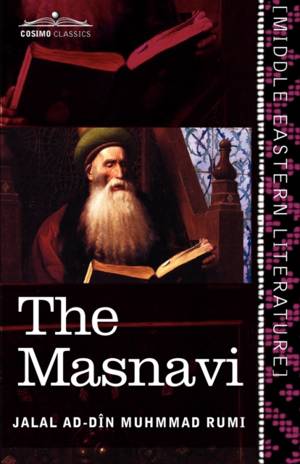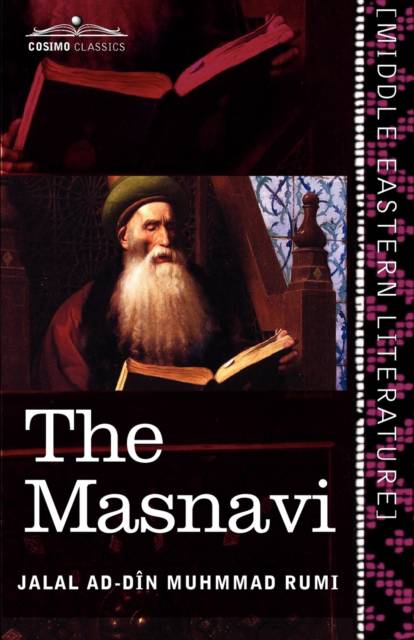
- Afhalen na 1 uur in een winkel met voorraad
- Gratis thuislevering in België vanaf € 30
- Ruim aanbod met 7 miljoen producten
- Afhalen na 1 uur in een winkel met voorraad
- Gratis thuislevering in België vanaf € 30
- Ruim aanbod met 7 miljoen producten
Zoeken
The Masnavi
The Spiritual Couplets of Maulana Jalalu'd-Din Muhammad Rumi
Jalal Ad Rumi
Paperback | Engels
€ 22,45
+ 44 punten
Omschrijving
The Masnavi, written by Mawlana Jalal Al-Din Muhammad Rumi at age 54 in 1258 until his death in 1273, is one of the most famous and best-loved Sufi texts ever written. Comprised of six books and over 25,000 verses, The Masnavi is a collection of poems and stories that teaches Sufis how to reach their Union with God. Rumi described the book as "the roots of the roots of the roots of the Faith." Filled to the brim with stories, anecdotes, lessons, and beautiful poetry, this version of The Masnavi contains the six books abridged, and was translated by E.H. Whinfield in 1898. JALAL AD-DIN MUHAMMAD RUMI (1207-1273) was a Persian Muslim theologian, poet, jurist, and Sufi mystic who taught peace between all religions, promoting tolerance and harmony. Born in the village of Wakhsh in greater Balkh (now Tajikistan), Rumi lived out most of his life in the Anatolian city of Konya. After his father's death, Rumi became the head of a madrassa, or religious school, and continued to learn and preach his father's mystical doctrines. Rumi taught that man had been separated from God, but his greatest desire was to reach God once more through music, dance, poetry and art, all of which is reflected in his many writings. His most famous work is the Matanwiye Manawi, or Spiritual Couplets, regarded by many as the Persian Qu'ran. Rumi's grave is still a place of pilgrimage in present-day Turkey.
Specificaties
Betrokkenen
- Auteur(s):
- Vertaler(s):
- Uitgeverij:
Inhoud
- Aantal bladzijden:
- 378
- Taal:
- Engels
Eigenschappen
- Productcode (EAN):
- 9781616404413
- Verschijningsdatum:
- 1/12/2010
- Uitvoering:
- Paperback
- Formaat:
- Trade paperback (VS)
- Afmetingen:
- 140 mm x 216 mm
- Gewicht:
- 476 g

Alleen bij Standaard Boekhandel
+ 44 punten op je klantenkaart van Standaard Boekhandel
Beoordelingen
We publiceren alleen reviews die voldoen aan de voorwaarden voor reviews. Bekijk onze voorwaarden voor reviews.







